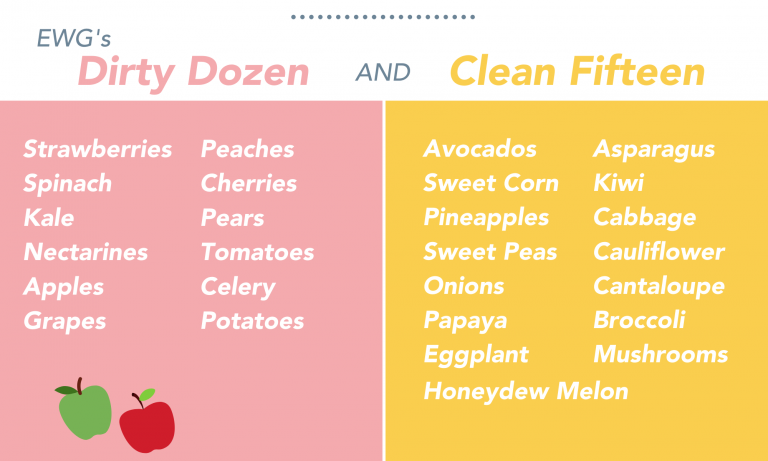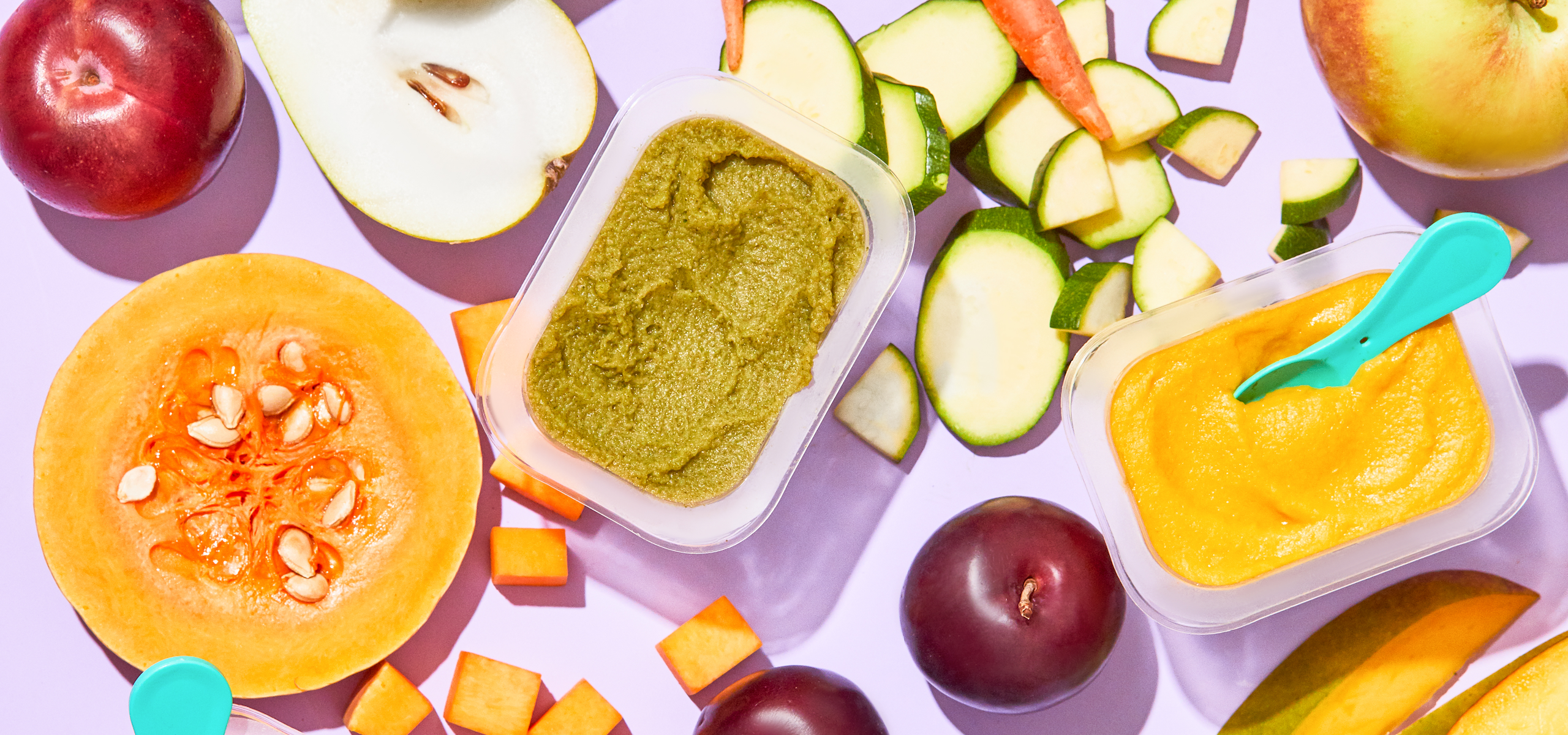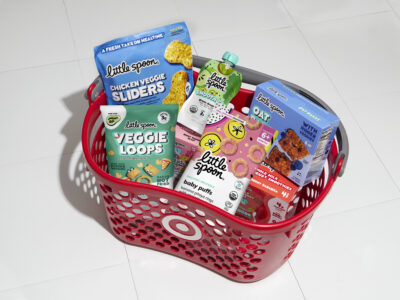There’s a lot of learning that comes with motherhood, including how and what to feed your baby (Psst..whether you’re getting ready for your babe’s very first bites or looking for veggie-packed meals to fuel those toddler years, Little Spoon has got you covered). We want to make it easy for you, mom, because no one wants to sort through the differences between organic, non-gmo, cage-free, and pasture-raised while trying to keep an infant occupied in the grocery store. We tapped Registered Dietician Lauren Kelly to break down why and when organic matters.
Let’s start by getting one thing straight: not everything that you buy has to be organic. But, when choosing produce, organic is more often than not, the better choice.
The Environmental Working Group (EWG) regularly publishes information on pesticide levels in (non-organic) produce to help educate us about what’s on our food, and what we may want to look out for. To keep it simple, pesticides are chemicals used to protect crops, but are potentially toxic to humans and may cause adverse health effects. The EWG classifies the produce with most pesticide residue as the Dirty Dozen, and those with the least as the Clean 15.
A few regular suspects repeatedly come to the top of the list when talking about the most highly contaminated fruits and veggies including berries, spinach, and fruits that you eat the skin (think grapes, apples). So a good rule of thumb is, if you are going to eat the skin – try your best to buy organic.
Why don’t we want to eat food with synthetic pesticides and herbicides? Simply, because they can be harmful to us.
This past year, the EWG released that kale rose to number three on the Dirty Dozen list as 60% of the samples tested were found to have a pesticide called Dacthal. In 1995, the EPA classified Dacthal as a potential carcinogen and its use was restricted by the European Union in 2009. Kale hadn’t been tested in a while so this high pesticide level was new news for us. In other words, if you’re team kale, make sure you’re buying organic.
I’m a firm believer that although organic is great and definitely preferred for fruits and veggies in which you eat the skin, I also believe that not every single food you buy has to be organic. A hard and fast rule: if you are not going to eat the skin, don’t stress about buying it organic. Think foods like avocado, bananas, pineapple, papaya, and melon.
A few things to remember next time you’re shopping produce:
- Keep the Dirty Dozen in mind and shop the organic produce section for these fruits and veggies
- If conventional is more your speed financially, it is definitely better to eat fruits and veggies than to choose the processed foods that can contain preservatives & additives.
- Cooking can help reduce pesticide levels, so get creative with that skin-on produce.
- Shop local. At the farmer’s market, ask vendors if their produce is organic (even if it’s not labeled as such). Organic certification is costly and for small farms, it can be a big expense. Farms can be practicing organic farming but don’t have the certification.
If you’re trying to save money (I mean are any of us not?!), try buying organic frozen fruits and veggies. It’s cheaper and frozen produce is picked at peak harvest so you know you’re getting your fill of nutrients.
Want to feed your mini organic and make mealtime even easier? That’s where Little Spoon comes in. All 100+ ingredients are USDA-certified organic and non-GMO, so you don’t have to worry about sifting through the grocery store produce and blending up your baby’s meals on your own. Check out Fin vs Fin’s organic baby & toddler food review for more info on why fresh is best.



